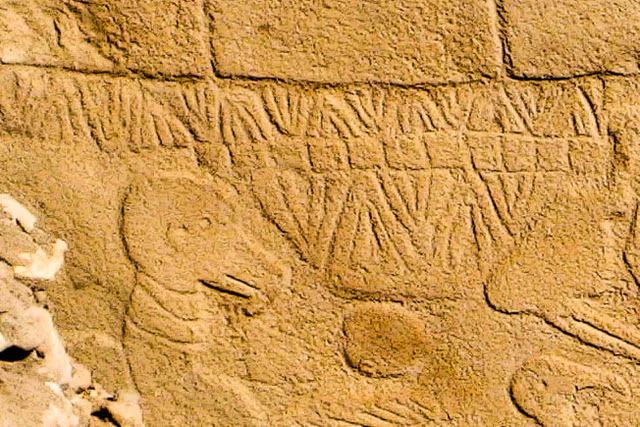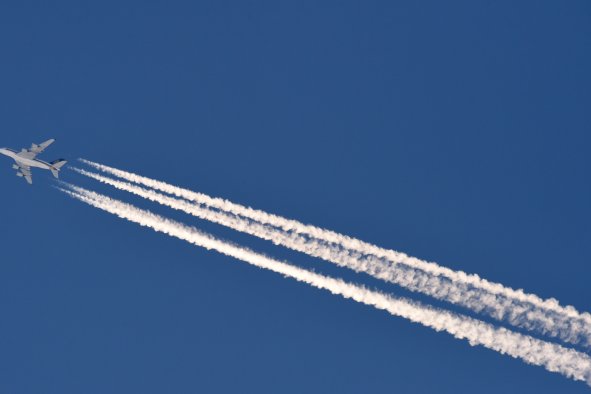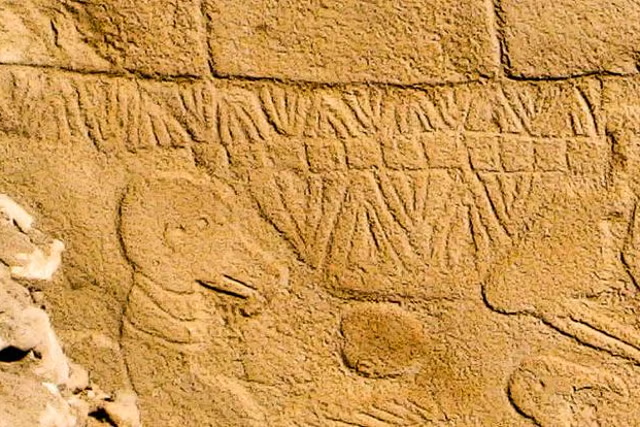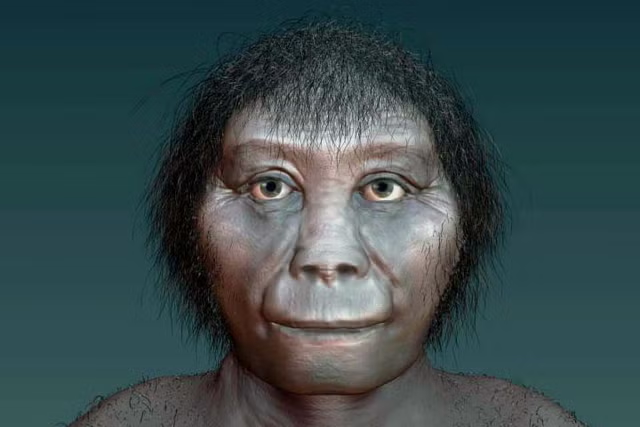Temperatures on the Great Barrier Reef have soared to their highest in 400 years, a new study has found.
It said the "unprecedented" heat on the sea surface around the natural wonder is driving increasingly frequent mass bleaching events that are putting it in danger.
Without stronger and faster action to tackle climate change, our generation will "likely be witness to the demise of one of Earth's great natural wonders", according to the paper, published today in the peer-reviewed journal Nature.
The Great Barrier Reef is the world's largest coral reef system and gives life to diverse species, from whales and dolphins to 1,500 types of fish and endangered turtles and dugongs.
It was listed as a UNESCO World Heritage Site in 1981 and it helps attract major tourism to Australia.
But its health has been at the heart of tensions between Canberra and the world heritage body.
Waters have been so warm in recent years that stressed corals - which are the backbone of the reef - expelled the colourful, symbiotic algae that live inside them, hence the term "bleaching".
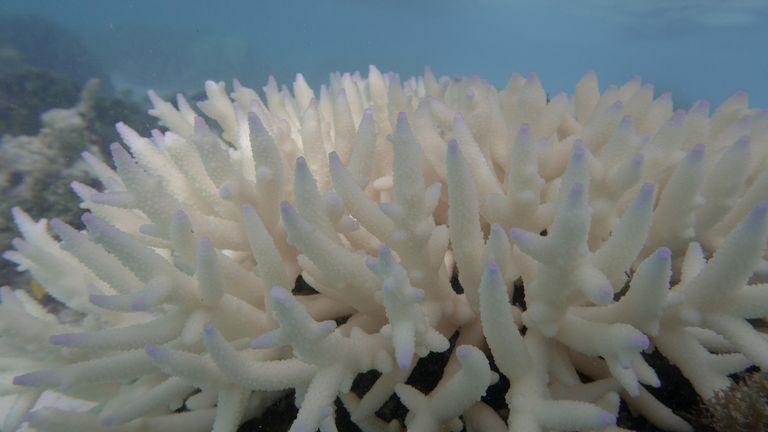
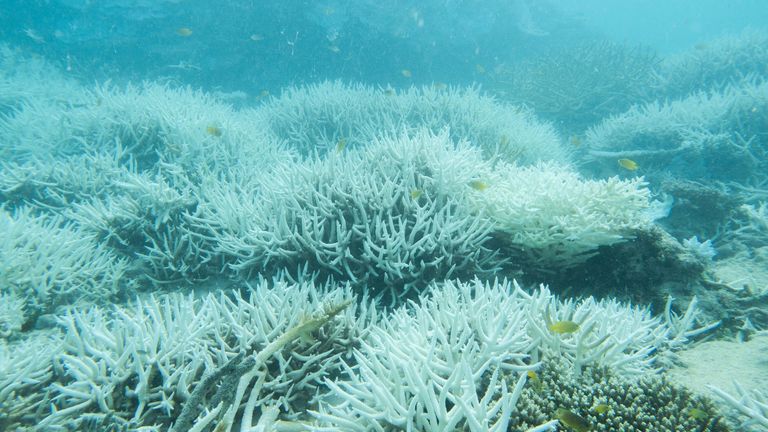
The Australian government has fiercely resisted a feared downgrade of the reef by UNESCO to "in danger", amid concerns about the impact on tourism and consequent pressure to take stronger climate action, and efforts to better protect it.
The researchers hope UNESCO will reconsider its recent decisions to keep the reef off the endangered list.
Professor Ove Hoegh-Guldberg from Queensland University said UNESCO's assessment was "now beyond credibility".
Keep up with all the latest news from the UK and around the world by following Sky News
Tap hereLead author Dr Ben Henley, from Australia's Wollongong University, said their study provides "new evidence" since UNESCO's last determination that the reef isn't yet in danger.
"We hope they look at that evidence and that that mechanism can be used to spur more action on climate change, and also local protection of the reef," he said.
Professor Helen McGregor, also from Wollongong University, said a reassessment of the coral's health "should potentially be extended to all World Heritage-listed reefs by UNESCO, because they are all in danger from global warming."
She called it the "coral in the coal mine".
"This is one of our early warnings that things are not right," she added.
UNESCO was not immediately available to comment.
How scientists take 400-year-old samples of coral
When the team set out on their study, they only had temperature records from the Coral Sea around the reef going back to 1900.
To fill in the blanks before that time, they donned flippers and scuba-diving gear and used a long, thin, cylindrical drill to remove cores from coral skeletons.
The cores were then analysed to compare the composition of parts from centuries ago with those from recent times that had matching temperature records.
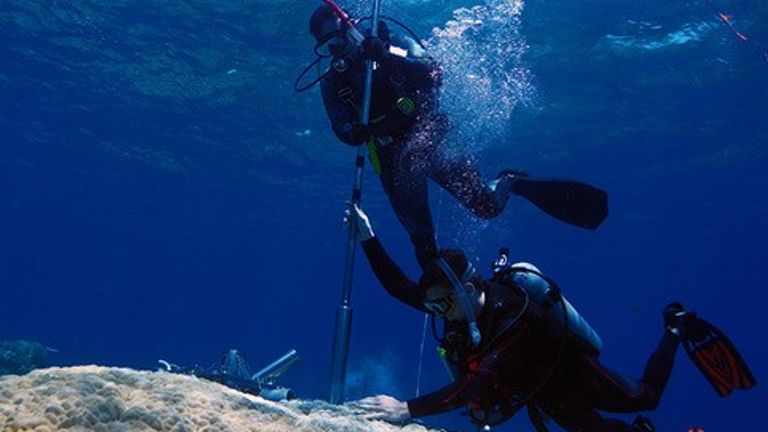
They found Australian summers in 2024, 2017 and 2020 gave rise to the respective warmest waters since at least 1618.
They also found several "stress bands" in the cores that corresponded with recent mass bleaching years.
In contrast, there were "relatively few" in cores before 1980, "suggesting that severe mass bleaching did not occur in the 1800s and most of the 1900s".
The research also found that sea temperatures varied but were overall cool and stable for hundreds of years before 1900, but there was a "clear warming trend" since then.
They ran simulations to compare the state of the reef with and without human activity that has caused climate change, which showed the overall warming trend and the latest extremes are down to global warming.
Disclaimer: The copyright of this article belongs to the original author. Reposting this article is solely for the purpose of information dissemination and does not constitute any investment advice. If there is any infringement, please contact us immediately. We will make corrections or deletions as necessary. Thank you.
